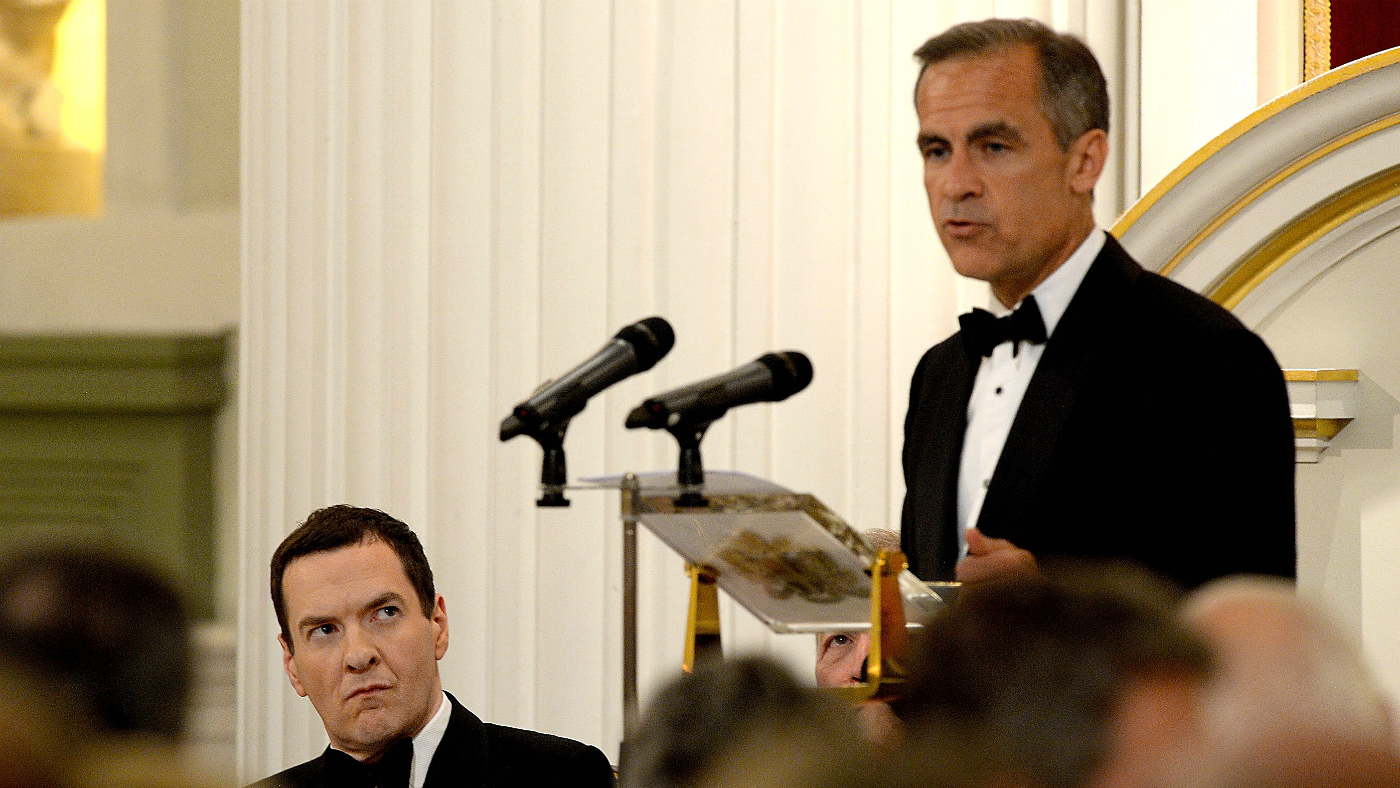Who will be the next head of the IMF?
George Osborne and Mark Carney are rivals for plum global job

A free daily email with the biggest news stories of the day – and the best features from TheWeek.com
You are now subscribed
Your newsletter sign-up was successful
George Osborne is reportedly considering throwing his hat into the ring to become the next chief of the International Monetary Fund (IMF), replacing Christine Lagarde.
According to The Guardian, the former chancellor has “told allies he would be well suited to succeed Lagarde”, after it emerged this week that she has been nominated to succeed Mario Draghi as head of the European Central Bank.
As the Guardian notes elsewhere, “running [the IMF] is one of the most important jobs in the global economy”, with responsibility for “managing one of the pillars of the world order, monitoring global growth, lending to countries in crisis, and driving (for good or ill) a message of economic liberalisation”.
The Week
Escape your echo chamber. Get the facts behind the news, plus analysis from multiple perspectives.

Sign up for The Week's Free Newsletters
From our morning news briefing to a weekly Good News Newsletter, get the best of The Week delivered directly to your inbox.
From our morning news briefing to a weekly Good News Newsletter, get the best of The Week delivered directly to your inbox.
One of the organisation’s most crucial functions is as a “global lender of last resort, stepping in to bail out countries if they fall into financial difficulties”, says The Daily Telegraph, which cites recent examples including billion-dollar interventions in Greece and Argentina.
If Osborne were to succeed in his bid, it would see him become the first Briton to lead the Washington-based body.
The Financial Times reports that, having recently backed Boris Johnson to become prime minister, Evening Standard editor Osborne “also has high hopes of winning the backing of a British government led by the former foreign secretary”. The FT also claims that he reportedly told colleagues and friends that the IMF needs a “skilled political communicator and operator... not a technocrat”.
But Osborne will face some fierce competition if he formally enters the race.
A free daily email with the biggest news stories of the day – and the best features from TheWeek.com
Ironically, the man whom Osborne appointed to the most prestigious role in UK economics - Bank of England governor Mark Carney - is the favourite to beat him to the top job.
Raghuram Rajan, the former head of the Indian Central Bank, is thought to be the leading contender from a non-Western country. His chances may have been improved by the recent appointment of David Malpass, an American, as president of the World Bank.
The appointment, according to the Telegraph, went ahead despite “increased pressure for a candidate from an emerging market nation to take the role for the first time” - a move which may “weigh against candidates from developed nations for the IMF role”.
At present, the odds appear stacked against Osborne. Paul Diggle, of Aberdeen Standard Investments, told the Telegraph that Osborne may miss out because of his austerity policies as chancellor.
“He is on the long lists but I don’t think Osborne is a realistic candidate,” Diggle said. “He is a big advocate for expansionary fiscal contraction and that is no longer en vogue at the IMF. His thinking doesn’t really chime with where the Fund is at.”
Meanwhile Carney, who is Canadian but also holds British and Irish citizenship, is “well placed to appeal to several different groups”, the Telegraph adds.
James Knightly, chief international economist at ING, told Yahoo News that Carney “has the CV, the experience, and the connections to be seen as a safe pair of hands”, while Naeem Aslam, chief market analyst at ThinkMarkets, said that he has “done a remarkable job at the BoE during the midst of the Brexit chaos”.
“Carney is a definite contender for the top spot at the IMF,” Aslam added. “It is usual for central bankers to go for a role like this and we believe that Carney has all the experience and charisma to fit the bill.”
But not everyone believes it is a done deal. The Guardian suggests that Osborne “built up links with China during his time running the UK Treasury, and is also well-connected to US Republicans (who share his vision of a small state)”, all of which could help him “win the necessary support”.